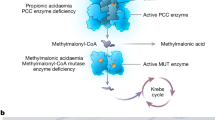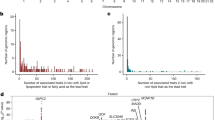Abstract
Loss-of-function CYP2C19 variants are associated with increased cumulative ischemic outcomes warranting CYP2C19 genotyping prior to clopidogrel administration. TAILOR-PCI was an international, multicenter (40 sites), prospective, randomized trial comparing rapid point of care (POC) genotype-guided vs. conventional anti-platelet therapy. The performance of buccal-based rapid CYP2C19 genotyping performed by non-laboratory-trained staff in TAILOR-PCI was assessed. Pre-trial training and evaluation involved rapid genotyping of 373 oral samples, with 99.5% (371/373) concordance with Sanger sequencing. During TAILOR-PCI, 5302 patients undergoing PCI were randomized to POC rapid CYP2C19 *2, *3, and *17 genotyping versus no genotyping. At 12 months post-PCI, TaqMan genotyping determined 99.1% (2,364/2,385) concordance with the POC results, with 90.7–98.8% sensitivity and 99.2–99.6% specificity. In conclusion, non-laboratory personnel can be successfully trained for on-site instrument operation and POC rapid genotyping with analytical accuracy and precision across multiple international centers, thereby supporting POC genotyping in patient-care settings, such as the cardiac catheterization laboratory.
Clinical Trial Registration: https://www.clinicalTrials.gov (Identifier: NCT01742117).
This is a preview of subscription content, access via your institution
Access options
Subscribe to this journal
Receive 6 print issues and online access
$259.00 per year
only $43.17 per issue
Buy this article
- Purchase on Springer Link
- Instant access to full article PDF
Prices may be subject to local taxes which are calculated during checkout

Similar content being viewed by others
Data availability
The datasets generated during and/or analyzed during the current study are available from the corresponding author on reasonable request.
References
Gandhi S, Zile B, Tan MK, Saranu J, Bucci C, Yan AT, et al. Increased uptake of guideline-recommended oral antiplatelet therapy: insights from the Canadian acute coronary syndrome reflective. Can J Cardiol. 2014;30:1725–31.
Karve AM, Seth M, Sharma M, LaLonde T, Dixon S, Wohns D, et al. Contemporary use of Ticagrelor in interventional practice (from Blue Cross Blue Shield of Michigan Cardiovascular Consortium). Am J Cardiol. 2015;115:1502–6.
Holmes MV, Perel P, Shah T, Hingorani AD, Casas JP. CYP2C19 genotype, clopidogrel metabolism, platelet function, and cardiovascular events: a systematic review and meta-analysis. JAMA 2011;306:2704–14.
Gaedigk A, Whirl-Carrillo M, Pratt VM, Miller NA, Klein TE. PharmVar and the landscape of pharmacogenetic resources. Clin Pharm Ther. 2020;107:43–6.
Botton MR, Whirl-Carrillo M, Del Tredici AL, Sangkuhl K, Cavallari LH, Agundez JAG, et al. PharmVar GeneFocus: CYP2C19. Clin Pharm Ther. 2021;109:352–66.
Brandt JT, Close SL, Iturria SJ, Payne CD, Farid NA, Ernest CS 2nd, et al. Common polymorphisms of CYP2C19 and CYP2C9 affect the pharmacokinetic and pharmacodynamic response to clopidogrel but not prasugrel. J Thromb Haemost. 2007;5:2429–36.
Hulot JS, Collet JP, Cayla G, Silvain J, Allanic F, Bellemain-Appaix A, et al. CYP2C19 but not PON1 genetic variants influence clopidogrel pharmacokinetics, pharmacodynamics, and clinical efficacy in post-myocardial infarction patients. Circ Cardiovasc Inter. 2011;4:422–8.
Mega JL, Close SL, Wiviott SD, Shen L, Hockett RD, Brandt JT, et al. Cytochrome p-450 polymorphisms and response to clopidogrel. N. Engl J Med. 2009;360:354–62.
Pereira NL, Rihal CS, So DYF, Rosenberg Y, Lennon RJ, Mathew V, et al. Clopidogrel pharmacogenetics. Circ Cardiovasc Inter. 2019;12:e007811.
Pereira NL, Weinshilboum RM. The impact of pharmacogenomics on the management of cardiac disease. Clin Pharm Ther. 2011;90:493–5.
Pereira NL, Farkouh ME, So D, Lennon R, Geller N, Mathew V, et al. Effect of genotype-guided oral P2Y12 inhibitor selection vs conventional clopidogrel therapy on ischemic outcomes after percutaneous coronary intervention: The TAILOR-PCI randomized clinical trial. JAMA 2020;324:761–71.
Lee CR, Luzum JA, Sangkuhl K, Gammal RS, Sabatine MS, Stein CM, et al. Clinical pharmacogenetics implementation consortium guideline for CYP2C19 genotype and clopidogrel therapy: 2022 update. Clin Pharmacol Ther. 2022.
Scott SA, Sangkuhl K, Stein CM, Hulot JS, Mega JL, Roden DM, et al. Clinical Pharmacogenetics Implementation Consortium guidelines for CYP2C19 genotype and clopidogrel therapy: 2013 update. Clin Pharm Ther. 2013;94:317–23.
Levine GN, Bates ER, Blankenship JC, Bailey SR, Bittl JA, Cercek B, et al. 2011 ACCF/AHA/SCAI Guideline for Percutaneous Coronary Intervention. A report of the American College of Cardiology Foundation/American Heart Association Task Force on Practice Guidelines and the Society for Cardiovascular Angiography and Interventions. J Am Coll Cardiol. 2011;58:e44–122.
Holmes DR Jr, Dehmer GJ, Kaul S, Leifer D, O’Gara PT, Stein CM. ACCF/AHA clopidogrel clinical alert: approaches to the FDA “boxed warning”: a report of the American College of Cardiology Foundation Task Force on clinical expert consensus documents and the American Heart Association endorsed by the Society for Cardiovascular Angiography and Interventions and the Society of Thoracic Surgeons. J Am Coll Cardiol. 2010;56:321–41.
Claassens DMF, Vos GJA, Bergmeijer TO, Hermanides RS, van ‘t Hof AWJ, van der Harst P, et al. A genotype-guided strategy for oral P2Y12 inhibitors in primary PCI. N. Engl J Med. 2019;381:1621–31.
Shaw JLV. Practical challenges related to point of care testing. Pr Lab Med. 2016;4:22–9.
Roberts JD, Wells GA, Le May MR, Labinaz M, Glover C, Froeschl M, et al. Point-of-care genetic testing for personalisation of antiplatelet treatment (RAPID GENE): a prospective, randomised, proof-of-concept trial. Lancet 2012;379:1705–11.
Franchi F, Rollini F, Rivas J, Rivas A, Agarwal M, Briceno M, et al. Prasugrel versus ticagrelor in patients with CYP2C19 loss-of-function genotypes: Results of a randomized pharmacodynamic study in a feasibility investigation of rapid genetic testing. JACC Basic Transl Sci. 2020;5:419–28.
Pratt VM, Del Tredici AL, Hachad H, Ji Y, Kalman LV, Scott SA, et al. Recommendations for clinical CYP2C19 genotyping allele selection: a report of the association for molecular pathology. J Mol Diagn. 2018;20:269–76.
Davis BH, DeFrank G, Limdi NA, Harada S. Validation of the Spartan RXCYP2C19 genotyping assay utilizing blood samples. Clin Transl Sci. 2020;13:260–4.
Funding
This study was supported by the National Institutes of Health (U01HL128606 and U01HL128626 to N.L.P and M.E.F).
Author information
Authors and Affiliations
Contributions
LMB was the principal investigator and takes primary responsibility for the manuscript. LMB, LJT, SGF, RJL, CSR, MEF, and NLP were involved in the conception and design, collection, and compilation of data, data analysis and writing the manuscript; GEL, VM, VM, TMN, DYFS, JPS, and AHBW in data analysis, strategic suggestions, and writing the manuscript.
Corresponding author
Ethics declarations
Competing interests
MEF reports research grants from Amgen, Novartis, and Novo Nordisk. Dr. So reports unrestricted grant support from Spartan Biosciences and Fujimori Kogyo and is on advisory boards for AztraZeneca Canada, Bayer Canada, JAMP/Orimed Pharma, and HLS Therapeutics. SGG reports research grant support and/or speaker/consulting honoraria from: AstraZeneca, Bayer, Boehringer Ingelheim, Bristol Myers Squibb, Daiichi-Sankyo/American Regent, Eli Lilly, JAMP Pharma, Pfizer, Servier, Valeo Pharma; and salary support/honoraria from the Heart and Stroke Foundation of Ontario/University of Toronto (Polo) Chair, Canadian Heart Research Centre and MD Primer, Canadian VIGOUR Centre. The remaining authors have no disclosures to report.
Additional information
Publisher’s note Springer Nature remains neutral with regard to jurisdictional claims in published maps and institutional affiliations.
Supplementary information
Rights and permissions
About this article
Cite this article
Baudhuin, L.M., Train, L.J., Goodman, S.G. et al. Point of care CYP2C19 genotyping after percutaneous coronary intervention. Pharmacogenomics J 22, 303–307 (2022). https://doi.org/10.1038/s41397-022-00278-4
Received:
Revised:
Accepted:
Published:
Issue Date:
DOI: https://doi.org/10.1038/s41397-022-00278-4



